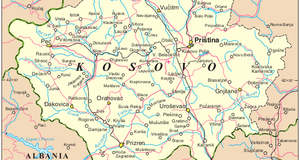From Interstate - Journal of International Affairs VOL. 2009/2010 NO. 1A Parcel Of Rogues: Scotland's Politicians and the Issue of Independence
By
Interstate - Journal of International Affairs 2010, Vol. 2009/2010 No. 1 | pg. 1/1
IN THIS ARTICLE
KEYWORDS
“Scotland is a foreign country. Strange, often beguiling. It is so foreign because of its very familiarity.” – Jonathan Meades1 An article about Scotland. In an International Politics Journal. This may seem odd, but it could become relevant in the next few years. It is possible that in twenty years that Scottish Politics will be International. Nationalists in Wales and Scotland can both be said to have an International slant – they want the current cultural and social issues between them and England to be international issues. Wales and Scotland are Nations, but they aren’t States. They have a National Identity, but not Political Independence. Despite all the powers that have been devolved – education, environment, culture and more – perhaps some of the most important powers are the ones that remain with Westminster – defence, and sovereignty. Not surprisingly, Independence (the flagship policy of the Scottish National Party) is one of the hot topics in Scottish Politics right now. Having danced around the issue for two years, Alec Salmond has declared that a Referendum on the issue is one of the Bills he wants to push through this parliamentary year.2 This article will look not at whether Independence is popular with the Scottish Populace, or whether Independence would be good for Scotland. Rather, it will look at where the political parties stand on the issue. This is for three reasons: One, it would be impossible to cover all of the issue in one article. Two, because the Bill may never make it out of parliament – it could live or die in the debating chamber. And three, because the wrangling of the parties is one aspect of the issue that is rarely examined from a neutral perspective. What does the current political climate in Scotland say about Devolution and the British political parties in General? Let us examine each party in turn... The Scottish Nationalist PartyThe SNP may be the ruling party, but currently they only hold 47 of the 129 seats in the parliament, well short of a majority.3 Unlike in Wales, the Nationalists have not formed a coalition with another party – the two Memebers of Scottish Parliament (MSPs) from the Green Party voted for Alec Salmond’s appointment as First Minister, but did not join his cabinet. They rule as a minority Administration. This is difficult at the best of times, but with an issue as important and divisive as Independence, this becomes almost impossible. In short, the SNP need to persuade 18 other MSPs to vote with them. Can Salmond rustle up the required votes? Which of the other parties is most likely to support (or benefit from) his flagship policy? The Scottish ConservativesThe Tories (or more precisely “The Conservative & Unionist Party”) have perhaps the most curious position. Because of proportional representation, they have a healthy 16 MSPs – the same number as the Lib Dems. Indeed they would have been the 3rd largest party at Holyrood, had Alex Fergusson not become the Presiding Officer. As the Unionists, their manifesto clearly states that they wish Scotland to remain part of the UK.4 While the party were initially opposed to the creation of a Scottish Parliament, David Cameron has since said that he would allow it to remain if he wins the next election. The Conservative position would seem to be straight forward. But the position becomes more interesting if one looks at how the House of Commons would be affected by the removal of all the Scottish MPs. The Tories have only one MP in Scotland5 (the constituency of Dumfriesshire, Clydesdale and Tweeddale), out of a grand total of 193 UK wide.6 Labour, by comparison would lose no less than 39 MPs. While this is less than their current majority, it is still a significant number of MPs, especially if you consider that Scotland contains some of Labour’s safest seats, as well as the constituencies of the current Prime Minister, Chancellor and two other Cabinet Members. Many of these seats are probably out of the Tories reach anyway, as Labours main opposition in Scotland has been the SNP for some time now. At the recent Glasgow North East by-election (held to find a replacement for former speaker Michael Martin) Labour had 12,231 votes, the SNP 4,120 and the Tories just 1,075 (only 62 more votes than the BNP).7 So while they are opposed to Independence in terms of policy, the Tories have perhaps the most to gain politically, should the Union be sundered. Does this mean that David Cameron wants to see an independent Scotland? Probably not, he will most likely be our next Prime Minister anyway, but he must be aware of the possible political implications. There have been occasions when controversial Labour Bills have only gone through with the support of Scottish MPs, whose constituencies the legislation had no effect on – “Top Up Fees” for universities went through by only 5 votes, for example.8 This is the so called “West Lothian Question”, which the Tories have raised on several occasions, but no simple solution has presented itself. An independent Scotland would cut this problem off at the source: It solves the “West Lothian Question” and reduce any Labour majority in the future to a level here controversial legislation is a lot harder to pass. The Labour PartyIn light of this, it is unsurprising that Labour have the most straightforward position. The second largest party in the Parliament (46 MSPs), they are both politically opposed to a split and have the most to lose at Westminster. Labour were of course the party who re-established the Scottish Parliament in the first place. At the time, Donald Dewer and other senior Scottish figures believed that a Scottish Parliament would lessen support for the SNP. In reality, the SNP have gone from strength to strength – partly because of Proportional Representation, partly because of a greater national awareness of Self-Determination and partly because of the film Braveheart, which provided a palpable boost to the SNP following its release in 1994.9 In a bizarre turn of events in May last year, Wendy Alexander (the then Scottish Labour Leader) called for Alec Salmond to put forward the referendum bill immediately.10 Labour’s thinking was that if the Bill passed but the public voted no (which was seen as likely), the SNP administration would lose its primary mandate. Salmond did not call her bluff. Instead he declined to put forward the bill, saying that he would wait until 2010, and that he would expect Labour support then. Alexander’s subsequent removal as Scottish Labour leader allowed the party to climb down from this potentially dangerous position, and they have since reverted back to their old policy. The Liberal DemocractsThe Lib Dems (12 MPs, 16 MSPs) are also opposed to Independence and would in fact lose an even greater proportion of their Westminster seats than Labour. In early November, the Lib Dems confirmed their opposition to a referendum, the position they took in their manifesto.11 But at this year’s Party conference, there were rumblings about a possible change of position. Even now, the Lib Dems are regarded as the party most likely to change their minds and support a referendum. Why is this? As the BBC’s Brian Taylor points out, they are the Liberal Democrats, and may wish to see the public get the chance to vote, even if it risks a result that they don’t want.12 This is comparable to their past policy of wanting to hold a Referendum on Britain’s membership of the EU: Wanting to let the public make their own choice, even if the Party is pro Europe. This suggestion reflects a wider concern among Scotland’s politicians: That even if the people are opposed to Independence, they may resent the decision being taken for them by politicians. This would be a legitimate concern at the best of times, and is even more when public confidence in our politicians is at an all time low. The Other MSPsThe final three seats in the Parliament are occupied by two Green Party MSPs and Margo MacDonald. The Greens support Independence “not out of nationalistic fervour, but as a means to create a more locally-based, sustainable, and democratic society” to quote their manifesto.13 Indeed, the Greens voted for Alex Salmond’s appointment as First Minister. Margo MacDonald is both an Independent and a supporter of Independence. She was deputy leader of the SNP from 1974 to 1979, but left the party between 1982 and the mid 1990s and then again in 2003.14 Even though they occupy just three seats between them, the Green’s and Margo’s support for Independence is important. Do the Votes Add Up?The more mathematically minded among you will already be ahead of me here: The SNP needs 65 of the 129 votes to secure a referendum: They have 47 MSPs, plus Margo and the Greens. That’s 50 – leaving them 15 votes short. But if they were to court the Tories or the Lib Dems (16 MSPs each) into voting for their bill then they would have reached the required number. (Incidentally, a tie would probably result in a failed bill, as the Presiding Officer is obliged to vote for the Status Quo.) ConclusionAs time of writing, it does not appear that the SNP will be able to push through a referendum. While Labour and the Lib Dems have flirted with the idea of supporting a Bill, their positions have solidified as time has gone on. Without a shift from another party the Bill simply will not pass. But Salmond is a skilled political operator – you never know what might be possible. Watch this space. What would the question on such a Bill be? Would it include the possibility of extra powers for Holyrood, but stop short of independence? What will happen to the SNP if they can’t get the bill through? How are people likely to vote in a referendum? And what will happen to the parties after a referendum, depending on the result? Those are questions for another article. Endnotes
Suggested Reading from Inquiries Journal
Inquiries Journal provides undergraduate and graduate students around the world a platform for the wide dissemination of academic work over a range of core disciplines. Representing the work of students from hundreds of institutions around the globe, Inquiries Journal's large database of academic articles is completely free. Learn more | Blog | Submit Latest in Political Science |















